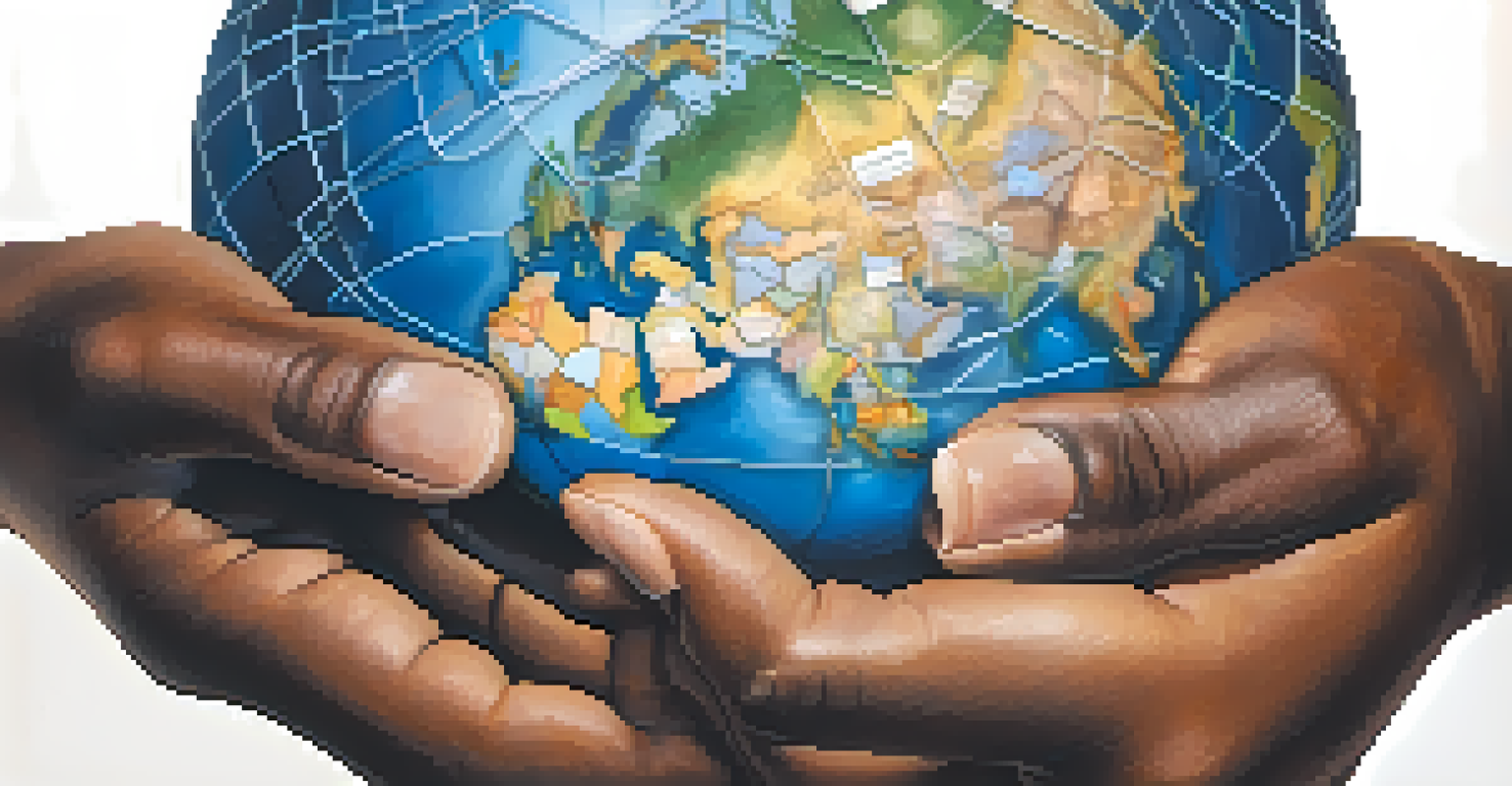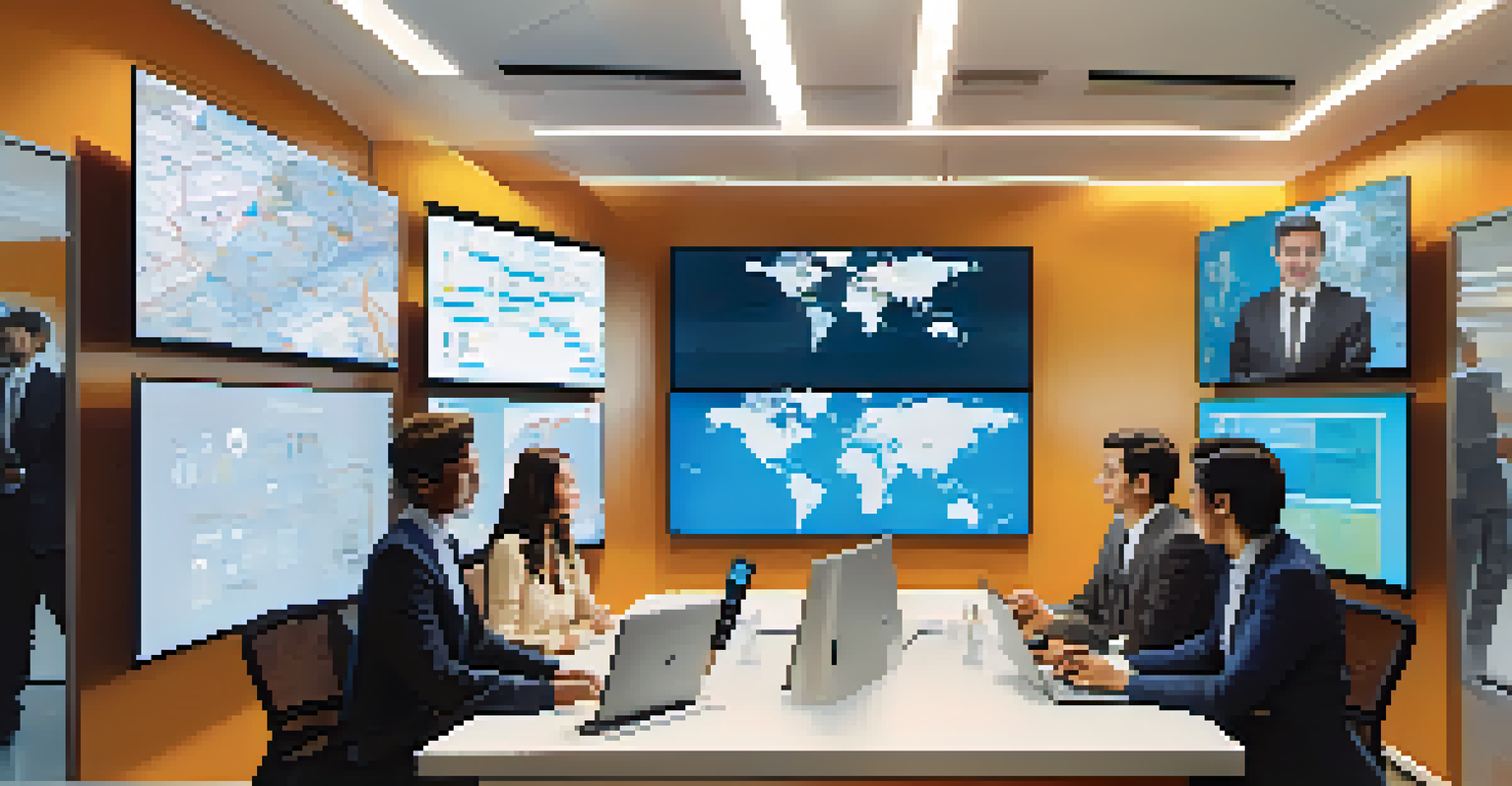Global Awareness: Understanding Our Interconnected World

What is Global Awareness and Why Does it Matter?
Global awareness refers to understanding the interconnections among people, cultures, and economies across the world. It’s about recognizing how actions in one part of the globe can affect lives in another. For instance, a climate change initiative in one country can have ripple effects on food supply chains globally, highlighting the urgency for collective action.
The greatest danger in times of turbulence is not the turbulence; it is to act with yesterday's logic.
Being globally aware encourages empathy and helps us appreciate diverse perspectives. Imagine living in a world where we only understood our local experiences—our views would be limited and often skewed. By embracing global awareness, we open ourselves up to a broader understanding of challenges like poverty, inequality, and environmental issues.
Moreover, global awareness fosters collaboration and innovation. When we understand that we share common challenges, we’re more inclined to work together to find solutions. This interconnectedness is crucial, especially in today’s fast-paced world, where technology bridges distances and cultures.
The Role of Education in Fostering Global Awareness
Education plays a pivotal role in cultivating global awareness. From early schooling to higher education, integrating global issues into the curriculum helps students grasp the complexities of our world. For example, learning about different cultures through literature or history fosters respect and understanding.

Furthermore, educational programs that promote study abroad opportunities allow students to immerse themselves in different cultures. This firsthand experience can be transformative, leading to a deeper appreciation of global diversity. Picture a student in a foreign country, navigating language barriers and cultural norms—these experiences build resilience and adaptability.
Global Awareness Fosters Empathy
Understanding global interconnections encourages empathy and broadens our perspectives on issues like poverty and climate change.
Additionally, technology has made it easier than ever to access global information. Online courses and virtual exchanges can connect learners to peers worldwide, breaking down geographical barriers. This digital age of education empowers individuals to be informed global citizens, equipped to address pressing global challenges.
How Media Shapes Our Understanding of Global Issues
Media plays a crucial role in shaping our perception of global events. News outlets, social media, and documentaries bring distant issues into our living rooms, making them feel more immediate and relevant. For instance, coverage of humanitarian crises can mobilize support and awareness, turning abstract statistics into human stories.
We cannot solve our problems with the same thinking we used when we created them.
However, media also has the power to misinform or oversimplify complex issues. A sensationalized news report might paint a misleading picture of a country or culture, fostering stereotypes rather than understanding. It’s essential to consume media critically and seek out multiple sources to get a well-rounded view of global issues.
Moreover, citizen journalism and social media platforms have empowered individuals to share their stories and perspectives. This democratization of information allows for a more diverse range of voices and narratives to be heard, enriching our global understanding. By engaging with these platforms responsibly, we can contribute to a more nuanced dialogue about our interconnected world.
The Impact of Globalization on Local Cultures
Globalization has brought the world closer together, allowing for the exchange of ideas, goods, and cultures. While this interconnectedness can lead to economic growth and cultural exchange, it can also challenge local traditions. For example, the spread of fast food chains can alter dietary habits and cultural practices around food.
Yet, globalization doesn’t necessarily mean the loss of local cultures; it can also lead to their revitalization. Many communities are embracing their unique identities, using global platforms to showcase local artistry and traditions. Think of how traditional music or crafts have gained international recognition through social media.
Education Cultivates Global Citizens
Integrating global issues into education helps students appreciate cultural diversity and prepares them to tackle worldwide challenges.
The key is to find a balance between embracing global influences and preserving local heritage. Communities can adapt and innovate while holding onto their roots. This dynamic interaction between global and local cultures enriches our world, creating a tapestry of diverse experiences.
Environmental Issues: A Global Challenge We All Share
Environmental challenges, such as climate change and pollution, are prime examples of our interconnectedness. What happens in one region can have far-reaching effects on ecosystems and communities worldwide. For instance, deforestation in one part of the world can contribute to rising sea levels that threaten coastal cities elsewhere.
Global awareness is crucial in addressing these environmental issues. Collective action, such as international agreements like the Paris Accord, highlights how nations can work together to combat climate change. When individuals and countries unite around a common goal, the potential for impactful change increases significantly.
Moreover, grassroots movements and local initiatives can spark global change. Communities advocating for sustainable practices can inspire others around the world to take action. This interconnected approach to environmental stewardship emphasizes that every small effort counts, reinforcing the idea that we’re all in this together.
The Importance of Cultural Exchange in a Global Society
Cultural exchange enriches our understanding of the world and fosters mutual respect. When we engage with different customs, languages, and traditions, we not only learn but also build bridges across cultures. Think of a cultural festival where people share food, music, and stories—this is where connections are made.
Traveling to different countries or hosting foreign exchange students can also promote cultural exchange. These experiences allow us to see life from another perspective, breaking down preconceived notions and stereotypes. It’s like looking through a kaleidoscope; each turn reveals a new pattern of understanding.
Technology Connects and Empowers Us
While technology bridges distances, it's essential to address the digital divide to ensure that all voices are represented in global conversations.
Incorporating cultural exchange into our daily lives, such as through local cultural events or international cuisine, can further enhance our global awareness. By celebrating diversity, we create a more inclusive world that values every voice and story. Ultimately, cultural exchange is a pathway toward a more harmonious global community.
How Technology is Connecting Us Globally
Technology has revolutionized the way we connect and communicate across the globe. From social media platforms to video conferencing tools, individuals can share their thoughts and experiences instantly, regardless of distance. This connectivity allows for the rapid spread of ideas and information, fostering a sense of global community.
However, it’s essential to recognize the digital divide that exists. Not everyone has equal access to technology, which can exacerbate existing inequalities. Bridging this gap is crucial to ensure that all voices are heard in the global dialogue.

Nonetheless, when used responsibly, technology can empower individuals and communities. Online campaigns can raise awareness about social issues, mobilizing support and driving change. As we navigate this interconnected digital world, embracing technology thoughtfully can enhance our global awareness and collective action.